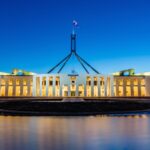The ban on cosmetic surgery testimonials stays in, but Queensland’s passing of the amendments has doctors worried about reputation and mental health.
Amendments to the National Law were passed by the Queensland Parliament yesterday, introducing new powers that let regulators “name and shame” doctors while they’re still under investigation.
Doctor groups are now concerned the new powers will threaten doctors’ professional reputations as well as harm their mental health.
The amendments bill contained more than 30 reforms to the National Law, the broadest set of changes introduced since the law was established in 2010.
The AMA earlier in the year argued vehemently against the proposal for AHPRA or the Medical Board to be able to make public warning statements about a doctor before a tribunal had completed its due process. These public statements could include a practitioner’s name, profession and information about the health services provided, according to an AHPRA spokesperson.
“Given the way the internet and social media operate, any adverse public statements by a regulator, once issued, are likely to remain permanently publicly accessible – even if the statement is subsequently revoked by the regulators as being without substance or issued in error,” the AMA said.?
Dr Helen Schultz, a psychiatrist who has worked extensively in doctor’s mental health, said with the investigative process being so stressful, disclosure before it’s over could be the last straw for some doctors.
“I don’t think it’s very fair to go poking around in doctors’ privacy without a legitimate reason, because none of us know what other things they have on their plate,” Dr Schultz said. “None of us know how they’re coping so none of us know if one simple email or a protracted investigation is going to be the last straw.
“As soon as you use the word ‘investigation’, the public will decide.”
In its response to the bill’s passage, AHPRA attempted to reassure the profession.
“We know there has been some concern about ‘naming and shaming’ of doctors in relation to the issuing of public statements,” Medical Board of Australia chair Dr Anne Tonkin said. “I would like to reassure the medical community that this power will only be used rarely, and only when there is a serious unmanaged risk to public health and safety.”
“The law reforms will not change the way we deal with vexatious notifications,” an AHPRA and National Boards spokesperson told TMR. “We have a rigorous framework to identify such notifications and to ensure that unfounded complaints are closed as quickly as possible.
“When a notification about a practitioner is made, AHPRA and the National Boards work with the practitioner and their employer to ensure that any risks to public safety are managed. There are rare circumstances when it is necessary to take further action to address a serious, unmanaged risk to public safety.”
The new powers will not have an immediate start, allowing AHPRA time to engage further with healthcare professionals on implementation, the spokesperson said, before governments finalise when the changes will commence.
The new amendments make public safety and confidence in the medical profession a “paramount principle” in decision making under the National Law. However, the AMA raised concerns earlier in the year that adopting this philosophy would come at the expense of safeguarding doctors’ reputations and their mental health.
Meanwhile, the AMA welcomed the retention of the ban on use of patient testimonials by cosmetic surgery practices, following intense media scrutiny of practitioners and the release of the findings of an AHPRA-commissioned review of cosmetic surgery.
Retaining the ban was one of 16 recommendations of the review, all of which were accepted by the regulator.
State and federal health ministers have also agreed to make “surgeon” a protected title.
Meanwhile, the maximum penalty for what’s deemed to be false or misleading advertising breaches has been doubled, from $5,000 to $10,000 for individuals and from $60,000 to $120,000 for bodies corporate.
In its response to the bill’s passage, the regulator chose to focus on cultural safety rather than the more contentious issues, such as the issuing of public statements.
“AHPRA and the National Boards are committed to a health system that is both culturally safe and free from racism,” AHPRA CEO Martin Fletcher said. “Recognising cultural safety as a guiding principle and objective of the National Law places this at the heart of our work.”
Queensland’s Parliament is the “host” jurisdiction for the National Law. This means changes will automatically apply in most states and territories after royal assent, although WA will need to introduce a corresponding bill into its own parliament, while South Australia and NSW will need to create regulations to confirm the amendments will be applied in their states.
Some of the changes take effect once the bill receives the assent, which can be seven to 10 days after it’s passed; others may have a delayed start based on what the state governments decide.








